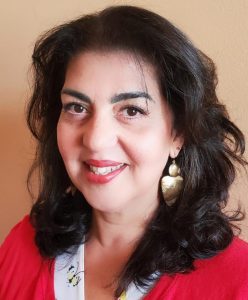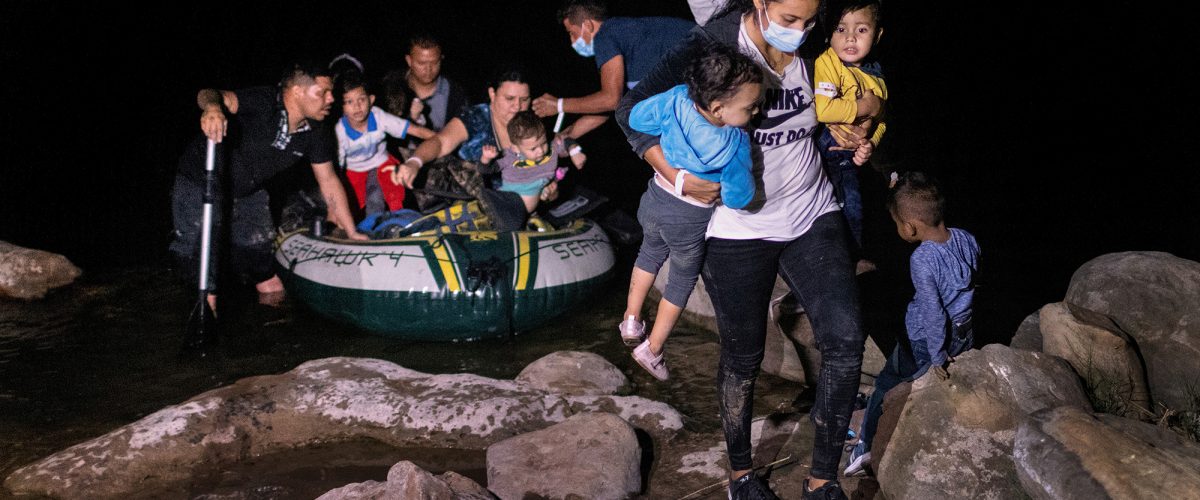For the past few weeks, the same headline has echoed throughout the United States: “Title 42 Ends.”
Title 42 is a regulation implemented to halt immigration during a national health crisis. While not expressly intended for this, the law inadvertently sped up the deportation process. Journalists, politicians and community leaders passionately debated the merits and drawbacks of terminating this law.
Amidst this contentious discussion and unyielding law enforcement, we often lose sight of the individuals caught in the fray: men, women and children desperate for safety, trapped by hunger, fear and misinformation. Thousands of immigrants, victims of their circumstances, feel overlooked by public opinion.

Rosaly Guzman
The government adopted a position of upholding the law for the nation’s health and safety, while private businesses grapple with labor shortages and the church struggles with the dilemma of silence in light of such a controversial issue.
It’s all too easy to turn a blind eye and disregard the plight of those who are voiceless and unknown, those who seemingly have nothing to offer. It is precisely in these moments, however, when we must remember that those at the border, like us, bear the image of God. They, too, carry the breath of life, a testament to God’s love.
This situation is by its own nature not only a subject of community and political struggle but involves us, the church of Jesus Christ.
While reflecting on this, I thought of a story from Genesis 16:1-16. We encounter a young slave girl, Hagar, caught in a dire situation. She was a stranger in a foreign land, powerless over her own life. Misused, abused and devalued by her masters, Abram and Sarah. She was seen as a means to an end.
God had promised Abram and Sarah a child, and in their impatience, they manipulated Hagar to fulfill their desires. It is difficult to imagine how this young slave passed the days without hope, without voice, without control.
Predictably, Hagar decided to escape, thinking perhaps she had nothing to lose, hoping to find a better life elsewhere. Displaced from Egypt, her homeland, and again from the only other place she knew, she found herself alone in the desert. Amid the harsh conditions and uncertainty, God found her. The angel of the LORD not only found her, but also recognized her, calling her by name.
“Hagar transformed from being another number, part of Abram’s property, to being seen and heard by God.”
For the first time in the narrative, we learn this young woman’s name, and we see her worth and dignity acknowledged by God. The angel took interest in her, in her story. Hagar transformed from being another number, part of Abram’s property, to being seen and heard by God.
God’s compassion didn’t stop there; God made a promise to Hagar, mirroring the promise made to Abram. She would be the mother of many, her descendants innumerable. God named her son Ishmael, meaning “God hears.”
From a humble slave, Hagar became an heir to God’s promises. Recognizing God as the “God who sees,” Hagar understood that even if she was invisible to those around her, her God saw her. Even if she was just another statistic, a political pawn, her God recognized her. Hagar knew she was seen by God, accepted, respected, cared for and loved by “he who sees her.” This divine encounter transformed her into the first evangelist of the Old Testament.
“God entrusts the church with the noble task of welcoming those rejected and displaced by society.”
As the body of Christ, we function as his hands and feet. Part of our calling is to seek out and love the oppressed, the displaced. This behavior was the mark of the primitive church, as they continually modeled Jesus’ own ministry. God sees the displaced and the wounded; God has entrusted us with the ministry of seeing and caring for our neighbor.
Moreover, we are accountable for our responses to others’ needs. We should not demand documentation or explanations. Instead, like the angel of the LORD, we should diligently seek out those who are lost, faithless and hopeless, call them by name, accept them, respect them, care for them and love them.
The Bible is a unified story telling about God’s plan to redeem humanity and restore us to Godself. To accomplish this, God entrusts the church with the noble task of welcoming those rejected and displaced by society. This mission calls for our action, beginning in our local ministry. We can extend a hand to nearby communities housing displaced women and families.
This ministry will look different in each community of faith but will have the same effect in heaven.
Let’s tell people about the God of Hagar, the God who saw her then and sees them today. Who would you tell God sees them? How would you demonstrate care and respect? The time is now. Together, we can make a difference for the kingdom of God.
Rosaly Guzman is a teacher, speaker and life coach. She holds a master’s degrees in theology and is working on a doctoral degree in ministry. She serves at Crosslife church in Oviedo, Fla., in the women’s ministry.
Related articles:
How Hagar shows us the meaning of divine motherhood
Is a woman in that story? | Opinion by Laurel Cluthe


